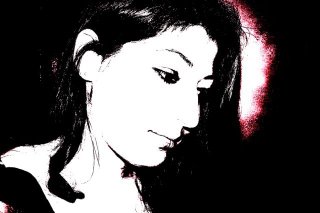The two faces of Sarkozy
He made his name as a minister who was accused of dividing France with his hardline rhetoric. But last night he won the race to succeed Chirac and vowed to be 'a president of all the French'
By John Lichfield
Published: 07 May 2007
France has taken a sharp turn to the right, electing Nicolas Sarkozy by a thumping majority to be President for the next five years.
M. Sarkozy defeated the Socialist candidate, Ségolène Royal by about 52.7 per cent to 47.3 per cent.
Although a centre-right President will replace a centre-right President on 16 May, M. Sarkozy, 52, represents a much harder, less compromising kind of right wing, but also protectionist, politics.
Clashes immediately broke out in Paris and a dozen other cities between riot police and left-wing youths protesting against M. Sarkozy's victory.
In an energetic, but sometimes disturbing, campaign, M. Sarkozy promised to cut taxes and curb trades union rights but also to restore "moral values " allegedly betrayed by successive left-wing and centre-right governments for four decades.
M. Sarkozy's wife, Cécilia, said to have left him after a split during the campaign, did not turn up to vote with her husband when he cast his ballot near his home in Neuilly-sur-Seine, just west of Paris, yesterday lunch-time.
In his victory speech, M. Sarkozy, the son of a Hungarian immigrant, attempted to reach out to his many critics. He said he would be the " President of all the French people" and would govern "in a spirit of inclusion ... so that everyone feels that they have the same chances as everyone else". He declared himself a "convinced European" but begged other EU governments to "hear the cry of peoples who want to be protected ... and see in the EU a Trojan horse for all kinds of menaces" . This was a clear warning and not the first that M. Sarkozy would push for a protectionist European trade and immigration policy.
Yesterday's result was a stinging defeat for the French Socialist Party and Mme Royal the third successive presidential election won by the right. She started the second round campaign two million votes behind M. Sarkozy and needed centrist voters to switch to her en masse.
Polls indicated yesterday that one in five of them had abstained or voted blank. The rest of the centre vote split down the middle between Mme Royal and M. Sarkozy. She had scored well among younger voters but was flattened by a Sarkozy landslide among the late middle aged and the elderly. There was an 84.8 per cent turnout, the highest for 26 years.
Mme Royal, 53, still beaming her wide smile, accepted defeat graciously. She said she had started a "renewal of the way politics is conducted in France, and especially on the left ... Something has arisen in France which will not stop here," she said. She said she intended to remain an important figure in the rebuilding of the left in new alliances with the centre something other Socialist leaders will contest.
Last night's triumph crowns a four-year march to power by M. Sarkozy, starting when he began to denigrate his ageing boss, President Jacques Chirac, a year after the last election. The former interior and finance minister presented himself initially as a man capable of healing the divisions in French society; a man of action, rather than an ideologue.
During the last couple of months, his campaign moved sharply to the right. He adopted the language and tone of a populist outsider, rather than the representative of an outgoing government. He attacked the "moral bankruptcy" of the left on crime and security. He suggested that the values of the 1968 left-wing student revolt in France had sapped the moral fibre of French society and enfeebled all recent governments, including those in which he had himself participated.
M. Sarkozy's rhetorical lurch to the right hooked many former far-right voters but may make his task as President much harder. His language has allowed opponents on the left and centre to demonise him as a threat to democracy. Last night's violent protests by anarchist and far-left youths, and scattered incidents in the suburbs, were condemned by left and right alike. They may, however, be signs of worse to come.
M. Sarkozy claims to be the candidate of "renewal" and " rupture" with the past. Opinion polls suggested that his greatest concentration of support was among older groups of voters. This was already true in the first round. Older voters may have been less inclined to vote for a woman. They may have been more sensitive to M. Sarkozy's appeals on crime, security, immigration and "national identity".
There were two Sarkozys in the race: the ranter and the reformer. The generational break-down of the vote suggests that, of the two, it was the conservative-populist who won the most support.
Outside a polling station in the 12th arrondissement of Paris, which voted 32 per cent for each candidate in the first round, it was difficult to tell the "Sarkozystes" from the "Ségolènistes". There were many cases of people who looked vaguely leftish who were voting for Sarkozy and people who seemed grimly conservative who were voting for Royal.
"The split is bizarre," said Sophie, 36, a smart-looking marketing executive, who had voted for Mme Royal. "There are people from the left voting Sarko because of his law-and-order mantra. There are people from the right voting Royal because they are scared of Sarkozy."
Share of the vote
53 per cent The share of the vote won by Nicolas Sarkozy in the second round of the French presidential elections
47 per cent The share won by his Socialist rival Ségolène Royal
independent
By John Lichfield
Published: 07 May 2007
Published: 07 May 2007



0 Comments:
Post a Comment
<< Home